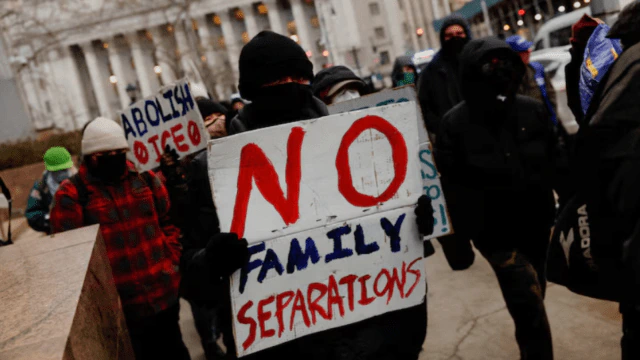The Trump administration has launched a new deportation policy that could change how unaccompanied migrant children are treated in the United States. Under this new system, children aged 14 to 17 are now being asked shortly after arrival if they want to “voluntarily” return to their home countries. Immigration experts and human rights advocates say this shift could put vulnerable children at serious risk, especially without legal advice or support.
Previously, American law protected unaccompanied minors—children who arrive at the border without a parent or legal guardian—by ensuring they were transferred to the Department of Health and Human Services (HHS) within 72 hours. Once in HHS custody, these children were either housed in shelters or reunited with family members in the U.S. while they waited for their immigration court hearings. Only children from neighboring countries like Mexico or Canada were eligible for voluntary return at the border, and even then, safeguards were in place to make sure the decision was made with understanding and without danger.
Now, the Trump administration has expanded this policy to include children from all countries. Immigration and Customs Enforcement (ICE) agents can ask a child almost immediately if they want to leave the U.S. If the child agrees, they are quickly deported without going through the usual protection process. If they say no, or if ICE fails to act within 72 hours, the child is transferred to HHS as before. Critics argue that this early questioning can pressure children into making life-altering decisions without legal assistance or a thorough understanding of their rights.
A spokesperson from the Department of Homeland Security defended the move, saying that returning children to their home countries safely has been a long-standing practice. They referred to the Trafficking Victims Protection Reauthorization Act (TVPRA), a federal law originally passed in 2000 to protect children from trafficking and abuse. However, legal experts say this interpretation misrepresents the law. The TVPRA was designed to ensure that children from non-neighboring countries receive time and legal guidance before being sent back.
Many immigration lawyers and former officials are raising concerns. One former Homeland Security official said that children cannot be expected to make such serious decisions alone. Neha Desai, managing director of Children’s Human Rights at the National Center for Youth Law, explained that children do not fully understand the dangers they may face back home or the consequences of choosing to leave. She added that many are frightened and confused, making them even more vulnerable to coercion.
The policy is part of a broader effort by Donald Trump to reduce immigration in the U.S., especially among undocumented migrants. His administration has introduced several strict measures, including quick deportations, limiting refugee admissions, ending certain humanitarian protections, and increasing border wall construction. Local police have also been granted additional powers to support immigration enforcement. Many families—especially those with both legal and undocumented members—have left the country to avoid ICE raids or arrests.
In some cases, children have been taken back into government custody because their family sponsors became targets of enforcement. Meanwhile, court cases for these children are being rushed, and access to legal support is being cut. These developments show a pattern of using unaccompanied minors as part of a larger strategy to discourage migration, regardless of the human cost.
Trump officials argue that the new policy is a response to the high number of unaccompanied minors who arrived during the Biden administration. They claim that many children are now unaccounted for or at risk. However, a 2024 report by the U.S. Government Accountability Office found that about 85 percent of these children were safely placed with sponsors and remained in contact with caseworkers.
Despite the backlash, this move appeals to Trump’s political base, who have long called for a reduction in immigration. Supporters believe these changes help ensure that social services and job opportunities are directed towards U.S.-born citizens. Still, critics say the policy marks a dangerous step away from years of bipartisan protections designed to safeguard the most vulnerable — migrant children escaping hardship and danger.

